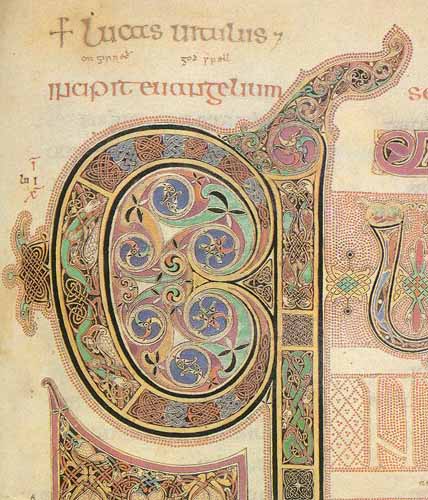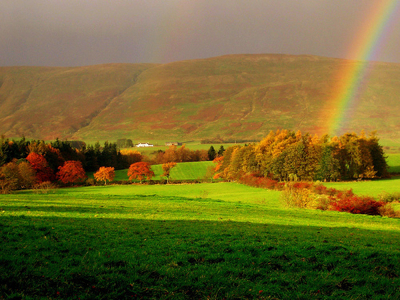CHAPTER EIGHTEEN: THE WOMAN AT THE WELL
Jesus and the disciples had travelled a full day, after spending a night on the road, before they came to a town in Samaria called Sychar, near the plot of ground Jacob had given to his son Joseph. Jacob’s well was there, and Jesus, tired as he was from the journey, sat down by the well. It was about the sixth hour, or noon. Within sight of this well was Mt. Gerizim, the holy mountain for Samaritans where sacrifices were offered and Passover celebrated.
When a Samaritan woman came to draw water, Jesus said to her, “Will you give me a drink?” Jesus did not ask this of his disciples because they had gone into the town to buy food.
The Samaritan woman said to him, “You are a Jew and I am a Samaritan woman. How can you ask me for a drink?” She asked because Jews do not share a common cup with Samaritans.
Jesus answered her, “If you knew the gift of G-d and who it is that asks you for a drink, you would have asked him and he would have given you living water.”
“Sir,” the woman said, “you have nothing to draw with and the well is deep. Where can you get this living water? Are you greater than our father Jacob, who gave us the well and drank from it himself, as did also his sons and his flocks and herds?”
Jesus answered, “Everyone who drinks this water will be thirsty again, but whoever drinks the water I give him will never thirst. Indeed, the water I give him will become in him a spring of water welling up to eternal life.”
The woman said somewhat sarcastically, “Sir, give me this water so that I won’t get thirsty and have to keep coming here to draw water.” But Jesus replied in equally surprising fashion, “Go, call your husband and come back.”
“I have no husband,” she replied curtly.
Jesus retorted, “You are right when you say you have no husband. The fact is, you have had five husbands, and the man you now have is not your husband. What you have just said is quite true.”
The woman, nonplussed by this replied said “Sir, I can see that you are a prophet.” And she sought to change the subject, adding “Our fathers worshiped on this mountain, but you Jews claim that the place where we must worship is in Jerusalem.”
Jesus said frankly, “Believe me, woman, a time is coming when you will worship the Father neither on this mountain nor in Jerusalem. You Samaritans worship what you do not know; we worship what we do know, for salvation is from the Jews. Yet a time is coming and has now come when the true worshipers will worship the Father in spirit and truth, for they are the kind of worshipers the Father seeks. G-d is spirit, and his worshipers must worship in spirit and in truth.”
The woman said, “I know that Messiah is coming. When he comes, he will explain everything to us.”
Then Jesus declared, “I who speak to you am he.” Just then his disciples returned and were surprised to find him talking with a woman. But no one asked, “What do you want?” or “Why are you talking with her?”
Suddenly, leaving her water jar, the woman went back to the town and said to the people, “Come, see a man who told me everything I ever did. Could this be the messiah?” Hearing this, various townsfolk came out of the town and made their way toward him.
Meanwhile his disciples urged him, “Master, eat something.” But he said to them, “I have food to eat that you know nothing about.” Then his disciples said to each other, “Could someone have brought him food?”
“My food,” said Jesus, “is to do the will of him who sent me and to finish his work. Do you not say, ‘Four months more and then the harvest’? I tell you, open your eyes and look at the fields! They are ripe for harvest. Even now the reaper draws his wages, even now he harvests the crop for eternal life, so that the sower and the reaper may be glad together. Thus the saying ‘One sows and another reaps’ is true. I sent you to reap what you have not worked for. Others have done the hard work, and you have reaped the benefits of their labor.”
Many of the Samaritans from that town believed in him because of the woman’s testimony, “He told me everything I ever did.” So when the Samaritans came to him, they urged him to stay with them, and so Jesus and his disciples stayed two more days. And because of his words many more became believers. The townsfolk said to the woman, “We no longer believe just because of what you said; now we have heard for ourselves, and we know that this man really is the Savior of the world.”
The disciples hardly knew what to make of all this. They had just seen Jesus violently opposed by his fellow Jews in Jerusalem, and welcomed by Samaritans. What manner of messianic figure could Jesus be? As Jesus and the disciples headed back north to Galilee there was much to ponder.
Once they crossed into Galilee the situation changed once more, for the word began to spread that Jesus was back in his home region, and various persons came out to meet and entreat Jesus for a healing or some help. As they headed into the hill country near Netzerit, a man ran up to Jesus and fell on his knees before him. “Good teacher,” he asked, “what must I do to inherit everlasting life?”
“Why do you call me good?” Jesus answered. “No one is good–except G-d alone. You know the commandments: ‘Do not murder, do not commit adultery, do not steal, do not give false testimony, do not defraud, honor your father and mother.'”
“Teacher,” he declared, “all these I have kept since I was a boy.”
Jesus looked at him and loved him. “One thing you lack,” he said. “Go, sell everything you have and give to the poor, and you will have treasure in heaven. Then come, follow me.” At this the man’s face fell. He went away sad, because he had great wealth. Jesus looked around and said to his disciples, “How hard it is for the rich to enter the kingdom of G-d!”
The disciples were amazed at his words. But Jesus said again, “Children, how hard it is to enter the kingdom of G-d! It is easier for a camel to go through the eye of a needle than for a rich man to enter the kingdom of G-d.”
The disciples were even more amazed, and said to each other, “Who then can be saved?”
“With human beings this is impossible”, said Jesus “but not with G-d; all things are possible with G-d.”
“But master, said Simon to him, “We have left everything to follow you!”
“Amen I say to you,” Jesus replied, “no one who has left home or brothers or sisters or mother or father or children or fields for me and the good news will fail to receive a hundred times as much in this present age– homes, brothers, sisters, mothers, children and fields and with them, persecutions, and in the age to come, everlasting life.
But many who are first will be last, and the last first.” At this point, the disciples were too weary and hungry to worry about the meaning of these words or to ask questions as the sun went down. At least, they thought, they were back in Galilee.

